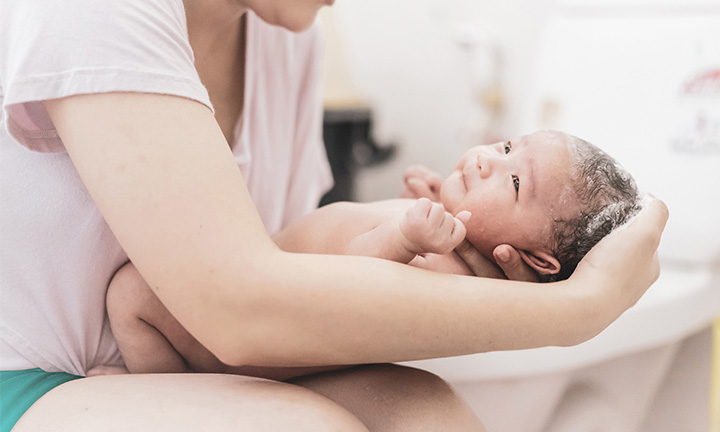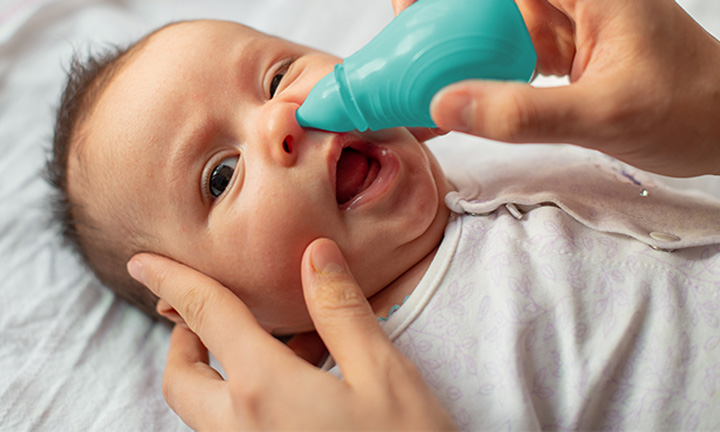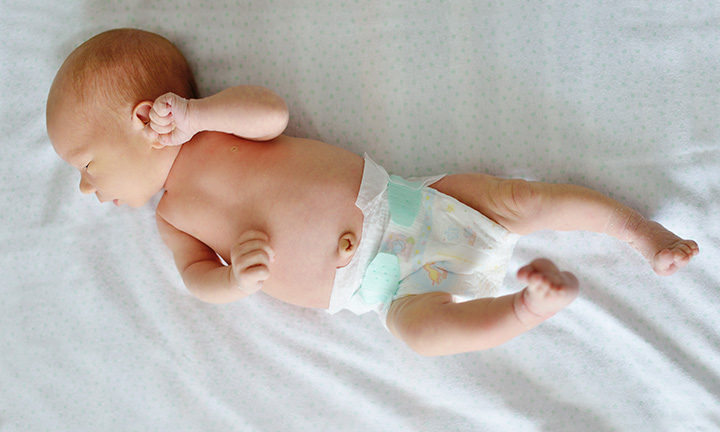
Colic in Babies: Symptoms and Remedies


Colic is a common yet distressing condition marked by frequent, intense, and prolonged crying in an otherwise healthy baby. These episodes often last more than three hours a day, at least three days a week, for over three weeks, typically peaking around six weeks of age and easing by three to four months.
Here are key signs of colic to watch for:
The cause of colic isn’t fully understood, but possible factors include digestive immaturity, gut bacteria imbalance, feeding challenges, or even parental stress. Caring for a colicky baby can be exhausting, and it’s normal to feel overwhelmed. In this article, we’ll explore soothing techniques, management tips, and when to seek help—so you and your baby can find some relief.
What Is Colic in Babies?
The definition of colic is a condition when a healthy baby cries for more than three hours per day, more than three days per week, for three or more weeks, and is hard to console or comfort.
With a colicky baby, the bouts of crying typically intensify and last as the day goes on and can worsen in the evening.
Sometimes your baby will cry because they’re hungry, tired, or have a wet diaper. But they’ll stop crying when they’ve been fed, cuddled, or had their diaper changed. If, however, they seem to cry for no reason, and continue to cry even once you’ve checked their diaper, fed them, and comforted them as best you can, they may have colic. This is what sets normal crying apart from colicky crying. With normal crying, your baby will generally respond to comfort measures and stop crying eventually; with colic, your baby persistently cries and can’t be consoled.
How Common is Colic?
It’s pretty common for babies to have colic. Around 20 percent of babies worldwide experience colic; that’s about 1 in 5 babies. It’s most common during the first 4 months of a baby’s life.
What Causes Colic in Babies?
Medical experts aren’t quite sure what causes an otherwise healthy baby to cry so much. The condition could result from multiple contributing factors, and sometimes multiple triggers may be at play.
Theories about the potential causes of colic in infants include:
Signs and Symptoms of Colic in Babies
So, how do you know if your infant has colic? If you suspect you have a colicky baby, look out for the following possible signs and symptoms:
Colic Vs. Gas
Colic and gas both cause infant discomfort but differ significantly. Colic involves extended and unexplained crying periods in otherwise healthy babies. Sometimes there’s no way to soothe a colicky baby. A colicky baby may cry for at least three hours a day, three days a week, for three weeks, typically resolving by three to four months.
Gas results from air swallowed during feeding, causing digestive discomfort. It peaks around 6-8 weeks and generally improves by three months. A gassy baby may have increased fussiness after feeding. Managing gas involves burping your baby regularly, using a bottle to minimize air intake, and increasing tummy time. Crying or fussiness generally stops or decreases once your baby has passed their gas.
How to Help Soothe a Colicky Baby
Many parents feel helpless and confused about how to help calm their colicky baby. Here are some things you could try to help soothe your baby if they have colic, sometimes even before a bout of crying starts:
How to hold a Colicky Baby?
You may wish to try different ways of holding your baby that can help soothe them. Some babies may be soothed when held close to your chest. You could also try the “football hold” or “colic carry,” where your baby’s chest and abdomen rest against your arm while you support their head at your elbow. Alternatively, you could try holding your baby upright, which may help them to pass gas, while also helping to reduce heartburn.
Soothing techniques such as gentle rocking, swaddling, or even a warm bath are great methods to help calm a colicky baby. It’s crucial to remain calm and patient, as babies can often sense your stress, which might increase their distress.
Baby Colic Treatments and Remedies
If you’re wondering how to get rid of colic, unfortunately, there’s no cure. Sometimes your baby will cry no matter what you do. So, try not to beat yourself up about it! Try any number of these different approaches. If one method doesn’t work within a week, go with something else on the list.
You may find that by the time you’ve tried most of these steps, your baby will have outgrown this colicky phase.
When Does Colic Typically Start?
Newborns start to cry more frequently when they’re around 2 weeks old. The age when colic generally appears is between 2 and 4 weeks. It commonly peaks between 4 and 6 weeks of age.
How Long Does Colic Typically Last in Babies?
Colic episodes can last for about 3 hours a day until your baby is about 6 weeks old; then, these episodes may get shorter and last about 1 or 2 hours a day until your little one is about 3 or 4 months old.
So, when does colic go away? In general, colicky crying tends to stop when your child is about 4 months old, but it can sometimes last until around 6 months of age.
How to Prevent Colic
Unfortunately, there’s no way to prevent colic. Sometimes it’s just a matter of using various methods to help soothe your baby when they’re colicky and simply waiting it out.
When to See Your Healthcare Provider
If your baby’s crying persists and nothing seems to help, it could be time to visit your baby’s healthcare provider. They’ll be able to determine whether your little one has colic or pinpoint another medical condition.
Also, if your baby still shows signs of colic once they’re more than 6 months old, speak to your baby’s healthcare provider to find out if there is an underlying cause.
Seek immediate medical attention if your baby
Coping With a Colicky Baby as a Parent
When your baby has colic, it’s important to pay attention to your own emotional state. Caring for a colicky baby can be tough, and can make many parents feel anxious and inadequate, not to mention stressed.
No matter how frustrated you feel, never shake your baby. Shaking an infant can cause bleeding in the brain, leading to permanent damage and even death. If you find yourself feeling out of control and unable to cope with your baby’s crying, try one or more of the following steps:
FAQS AT A GLANCE
Medical experts aren’t quite sure what causes colic in babies, but contributing factors may include:
- Gas
- An underdeveloped digestive system
- Acid reflux or gastroesophageal reflux disease (GERD)
- Overfeeding
- Underfeeding
- Not enough burping
- Food allergies or milk intolerances
- Exposure to tobacco smoke
- Family tension.
The Bottom Line
No matter how upset or frustrated you might feel when your baby is crying, remember that you’re doing a great job as a parent. Soon enough, this colicky phase will pass, and you can get through this.
No matter what, one thing is for certain, you’ll need a lot of diapers. Did you know that you can get rewards for all those purchases? Download the Pampers Rewards app today to start racking up Pampers Cash that you can redeem for savings. You deserve all these rewards and more!
- American Academy of Pediatrics. Caring for Your Baby and Young Child: Birth to Age 5, 7th ed. (New York: Bantam Books, 2019).
- Mayo Clinic. Guide to Your Baby’s First Years, 2nd ed. (Rochester, MN: Mayo Clinic Press, 2020).
- Cleveland Clinic. “Colic.”
- Healthy Children. “Abdominal Pain in Infants: 8 Possible Reasons Your Baby’s Tummy Hurts.”
- Healthy Children. “Colic Relief Tips for Parents.”
- KidsHealth. “Colic.”
- MayoClinic. “Colic – Symptoms and Causes.”
- MedlinePlus. “Colic and Crying – Self Care.”
Read more about Baby
Join a World of Support
through Pregnancy and Parenthood.
TRACK WITH TOOLS
LEARN WITH EXPERTS
GET REWARDED












